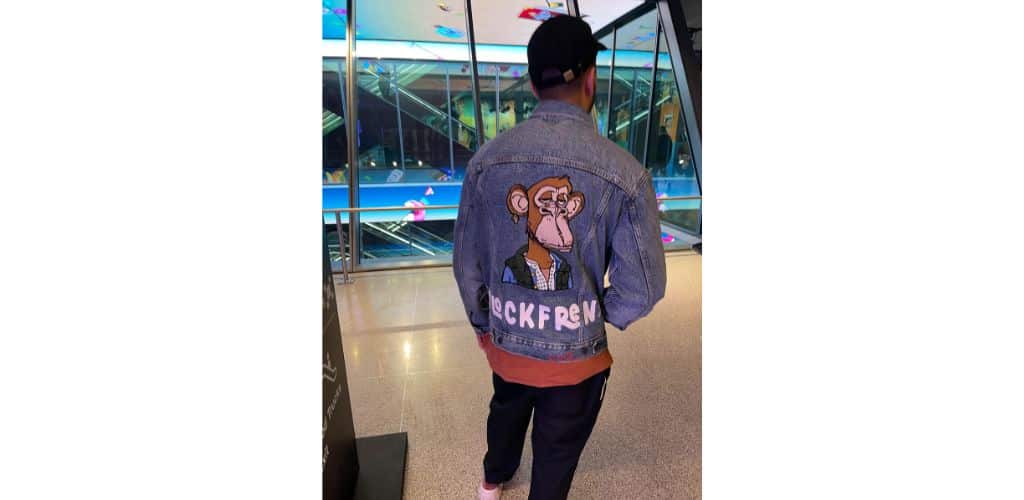A federal district court judge has ordered a conceptual artist and his partner to pay more than $1.5 million in damages for copying Bored Ape’s Non-Fungible Token (NFT) art.
Plaintiff Yuga Labs, Inc. is the creator of one of the world’s most well-known and successful NFT collections, known as the Bored Ape Yacht Club (BAYC).
As the court noted,
According to Yuga, the BAYC NFTs have earned significant attention from the media for their popularity and value, including being featured on the cover of Rolling Stone magazine and being dubbed the “epitome of coolness for many” by Forbes magazine. Yuga’s BAYC NFTs often resell for hundreds of thousands, if not millions, of dollars, and several prominent celebrities are holders of BAYC NFTs. In addition to certain benefits that come with membership in the exclusive community of BAYC NFT holders, Yuga maintains that much of the BAYC NFT collection’s value arises from their rarity because only 10,000 BAYC NFTs exist and each is entirely unique.
Yuga owns several unregistered trademarks, including “BORED APE YACHT CLUB,” “BAYC,” “BORED APE,” the BAYC Logo, the BAYC BORED APE YACHT CLUB Logo, and the Ape Skull Logo, which it has used since around April 2021.
Defendant Ryder Ripps is a visual artist and creative designer “who creates artwork that comments on the boundaries between art, the internet, and commerce,” according to the court.
Ripps claimed that Yuga “deliberately embedded racist, neo-Nazi, and alt-right dog whistles in the BAYC NFTs and associated projects.”
The court noted that the defendants
provided several examples, including their claim that Yuga’s BAYC Logo imitates the Nazi Totenkopf emblem for the Schutzstaffel and their claim that the name of Yuga’s company includes a neo-Nazi dog whistle because the word “Yuga” is a reference to the phrase “Surf the Kali Yuga,” which the alt-right uses as an esoteric way of saying enjoy sin and embrace conflict.
Ripps criticized Yuga using social media, podcasts, and his own website.
Around May 2022, Ripps and defendant Jeremy Cahen created their own NFT collection called the Ryder Ripps Bored Ape Yacht Club (RR/BAYC). The collection points to the same online digital images as the Bored Yacht Club NFT collection.
As the court explained,
Defendants contend that their “use of pointers to the same images is a form of ‘appropriation art’ that serves several purposes,” including:
(1) bringing attention to Yuga’s use of racist, neo-Nazi, and alt-right messages and imagery;
(2) exposing Yuga’s use of unwitting celebrities and popular brands to disseminate offensive material;
(3) creating social pressure demanding that Yuga take responsibility for its actions; and
(4) educating the public about the technical nature and utility of NFTs.
Yuga filed suit in July of 2022, alleging causes of action for:
(1) false designation of origin (15 U.S.C. § 1125(a));
(2) false advertising (15 U.S.C. § 1125(a));
(3) cybersquatting (15 U.S.C. § 1125(d));
(4) common law trademark infringement; (5) common law unfair competition;
(6) unfair competition (Cal. Bus. & Prof. Code §§ 17200 et seq.);
(7) false advertising (Cal. Bus. & Prof. Code §§ 17500 et seq.);
(8) unjust enrichment;
(9) conversion;
(10) intentional interference with prospective economic advantage; and
(11) negligent interference with prospective economic advantage.
Yuga accused Ripps of “trolling Yuga Labs and scamming consumers into purchasing RR/BAYC NFTs by misusing Yuga Labs’ trademarks.”
In April, the judge found that Ripps’ NFTs were “no more artistic than the sale of a counterfeit handbag” and ruled in favor of Yuga.
The court ordered the defendants to pay Yuga all of their profits from sales of their copycat NFTs, plus attorneys’ fees and damages for cybersquatting.
The case is Yuga Labs Inc v. Ripps, U.S. District Court for the Central District of California, No. 2:22-cv-04355.
Takeaway: “Appropriation art” is a risky business. The line between “fair use” and IP infringement isn’t clear, as we’ve discussed in previous blogs. The line may be further clarified in the context of disputes over the use of copyrighted artwork to create “new” art using generative AI.
Just like the haiku above, we like to keep our posts short and sweet. Hopefully, you found this bite-sized information helpful. If you would like more information, please do not hesitate to contact us here.


